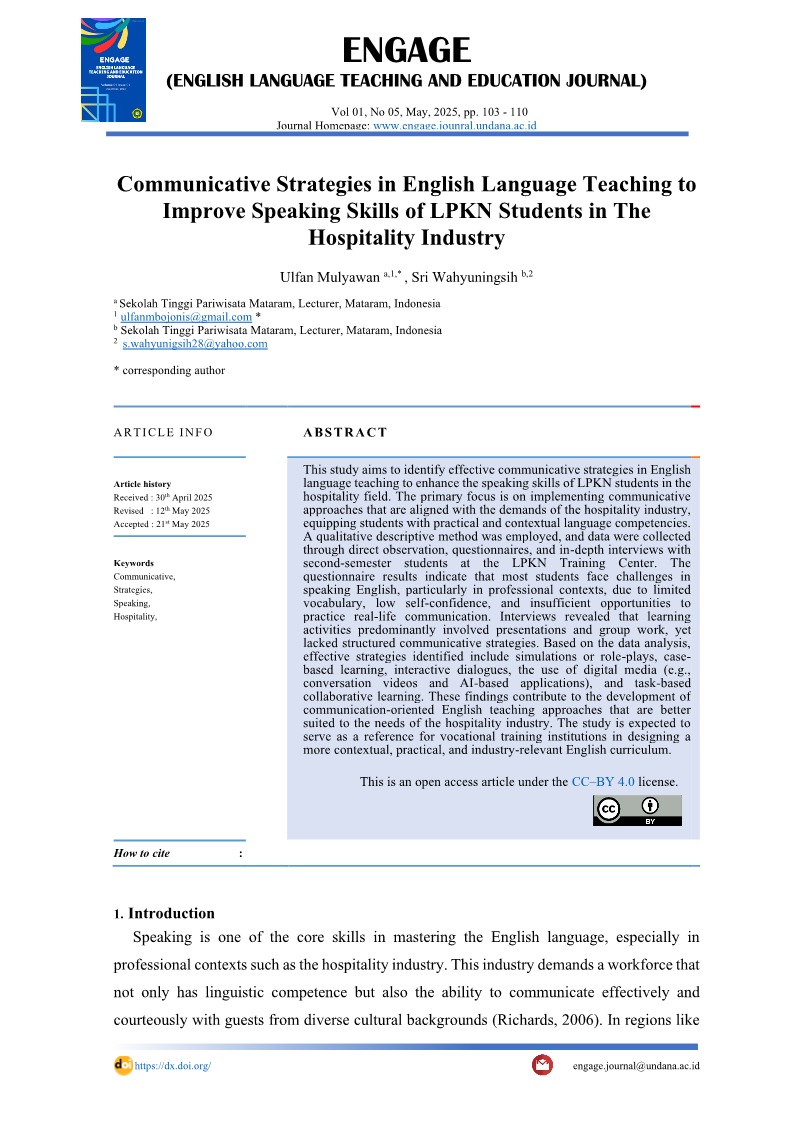Communicative Strategies in English Language Teaching to Improve Speaking Skills of LPKN Students in The Hospitality Industry
Keywords:
Communicative, Strategies, Speaking, HospitalityAbstract
This study aims to identify effective communicative strategies in English language teaching to enhance the speaking skills of LPKN students in the hospitality field. The primary focus is on implementing communicative approaches that are aligned with the demands of the hospitality industry, equipping students with practical and contextual language competencies. A qualitative descriptive method was employed, and data were collected through direct observation, questionnaires, and in-depth interviews with second-semester students at the LPKN Training Center. The questionnaire results indicate that most students face challenges in speaking English, particularly in professional contexts, due to limited vocabulary, low self-confidence, and insufficient opportunities to practice real-life communication. Interviews revealed that learning activities predominantly involved presentations and group work, yet lacked structured communicative strategies. Based on the data analysis, effective strategies identified include simulations or role-plays, case-based learning, interactive dialogues, the use of digital media (e.g., conversation videos and AI-based applications), and task-based collaborative learning. These findings contribute to the development of communication-oriented English teaching approaches that are better suited to the needs of the hospitality industry. The study is expected to serve as a reference for vocational training institutions in designing a more contextual, practical, and industry-relevant English curriculum.
Downloads

Downloads
Published
Issue
Section
License
Copyright (c) 2025 ENGLISH LANGUAGE TEACHING AND EDUCATION JOURNAL

This work is licensed under a Creative Commons Attribution-NonCommercial-ShareAlike 4.0 International License.






